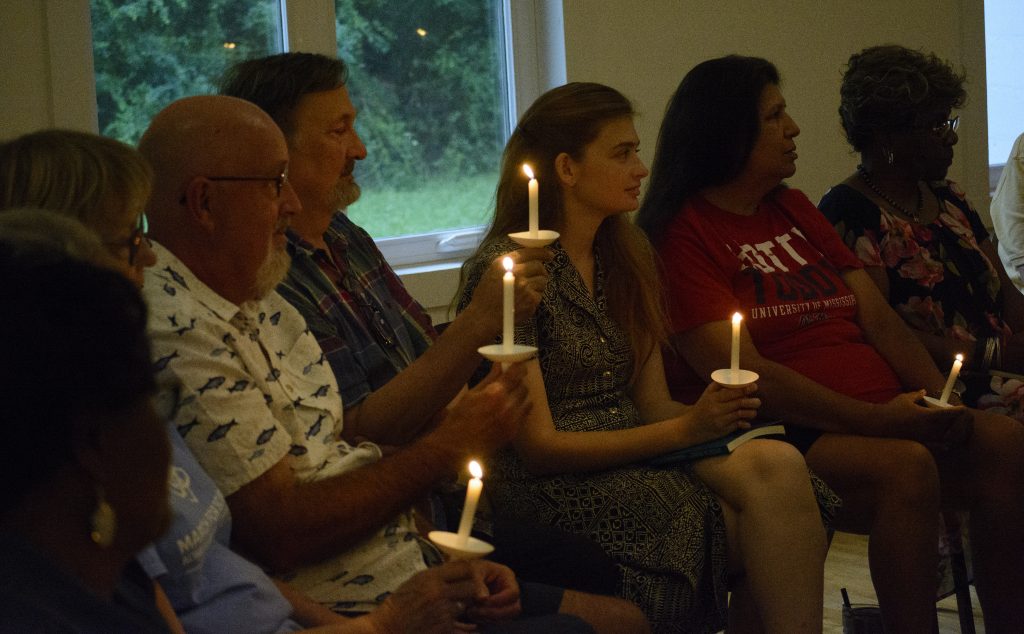A candlelight vigil in response to the recent violence in Charlottesville, Virginia drew a solemn crowd of about 30 students and Oxonians tonight at the Unitarian Universalist Congregation of Oxford.
The event, organized by university professors Rev. Gail Stratton, Chris Sapp and his wife, Dinorah, featured songs of solidarity and prayers from different faiths, as well as moments of silence and reflection.

Photo by Marlee Crawford
Stratton gave a message of hope to attendees.
“Help us all to believe in the possibilities and not forget to dream of the world we long for, to imagine the world we long for,” she said.
Sapp said an event like this was necessary for the Oxford community.
“Many people have expressed that events like Charlottesville could come to Oxford,” Sapp said. “We wanted to show a strong demonstration for love rather than hate and unity rather than division.”
The violence in Charlottesville erupted during a “Unite the Right” rally in protest of the removal of a statue of Confederate Gen. Robert E. Lee. The city of Charlottesville declared a local state of emergency. The protest turned violent and a car rammed into a crowd of counter protesters, killing one and injuring more than 30 others.
Chancellor Jeffrey Vitter tweeted a statement in response to the violence, saying the university stands with Charlottesville and the University of Virginia.
In addition to showing hope after the recent events in Charlottesville, the vigil also served as a response to inequality and racism in the United States.
“We wanted to send a message to our African-American and Jewish friends that we don’t tolerate hate acts against those groups,” Sapp said.
Jaz Brisack, a university student and member of the congregation, attended the event after participating in a larger Charlottesville rally in Chicago. She said the town and the university should have felt a responsibility to honor the victims because of their past.
“There wasn’t enough of an outpouring locally,” she said. “I think that this was a good showing, but it should have been put together by a broader part of the community, like the town or the university.”






